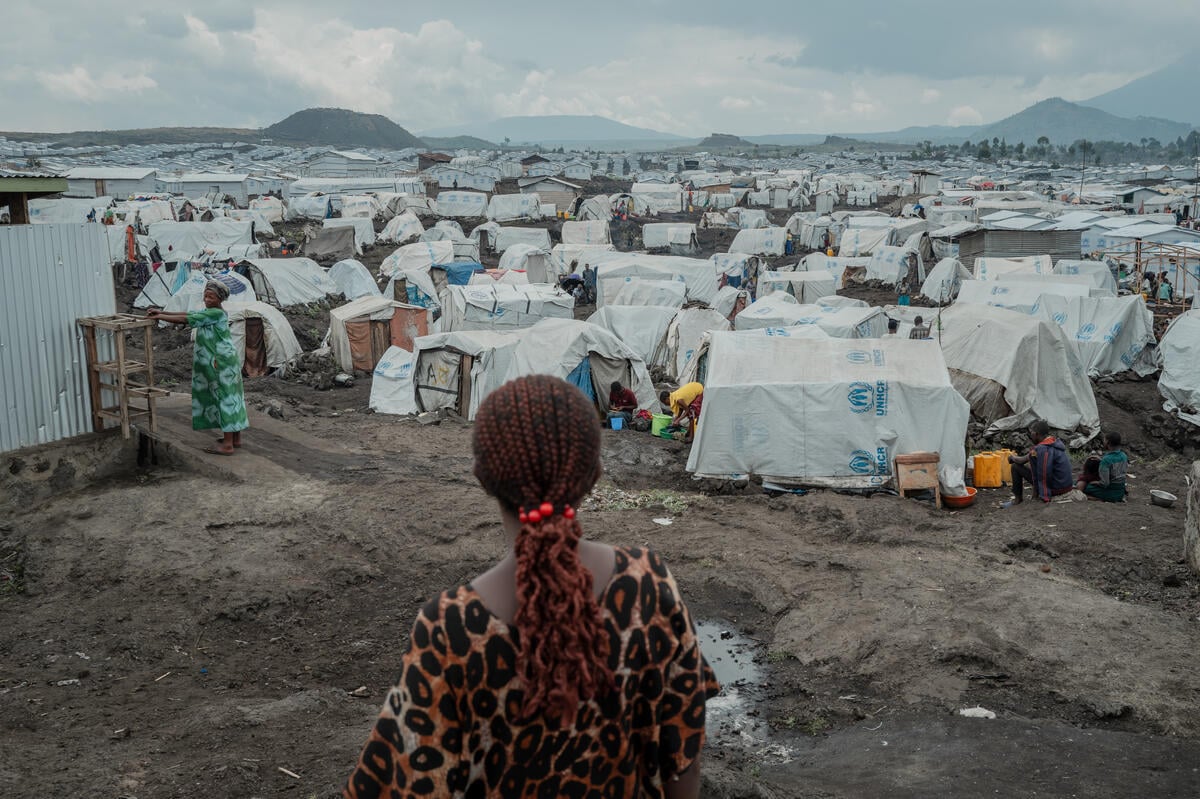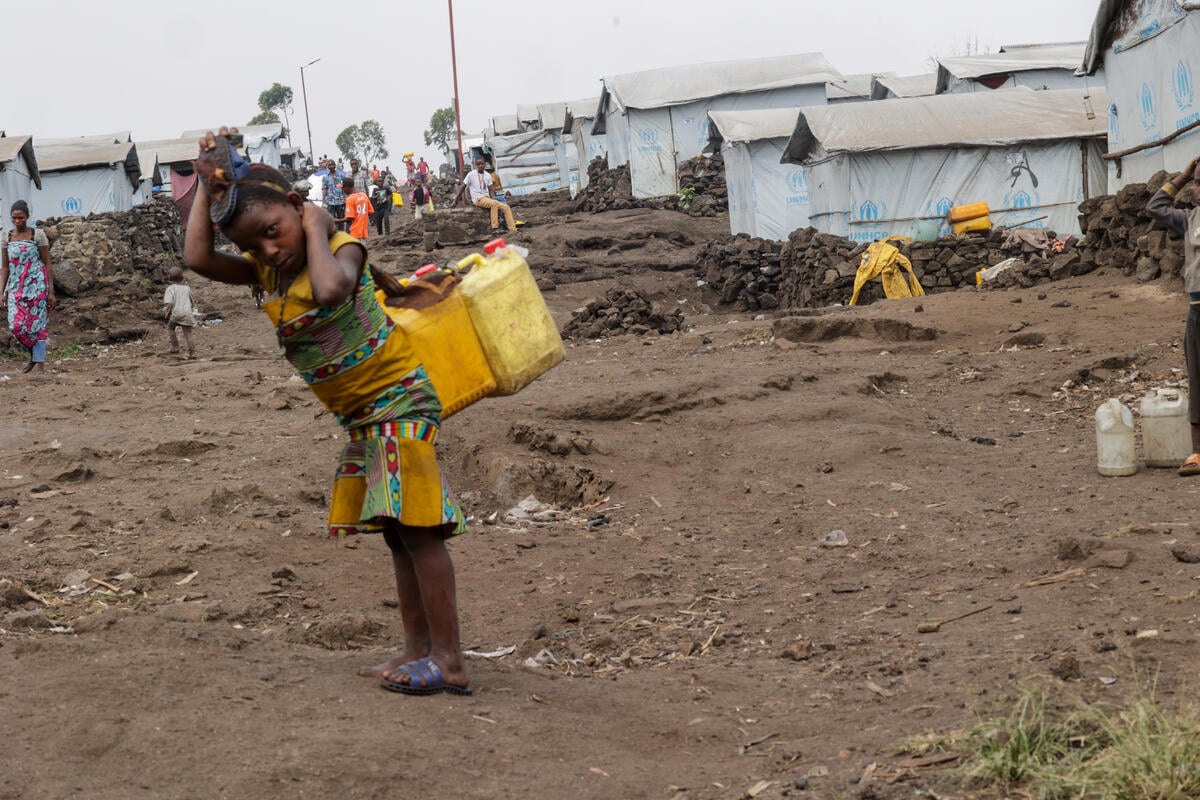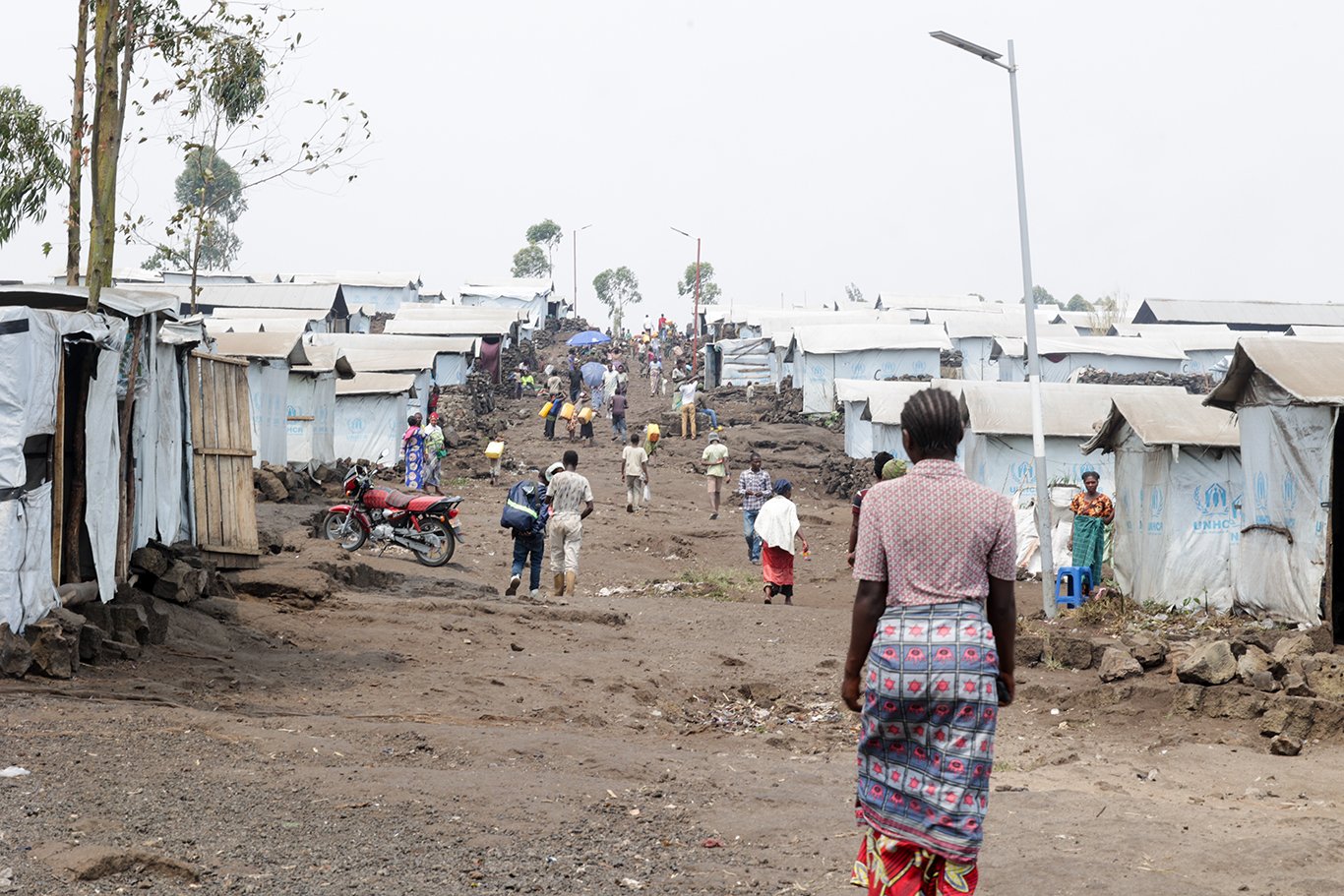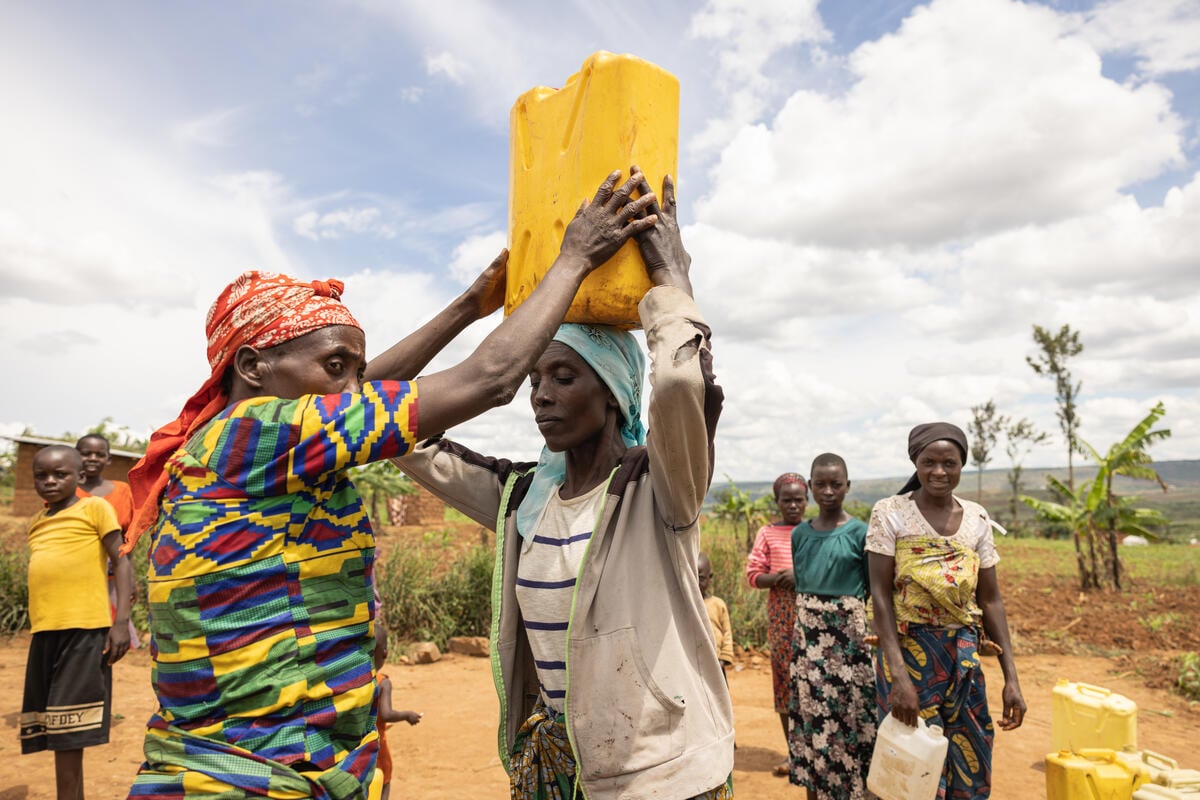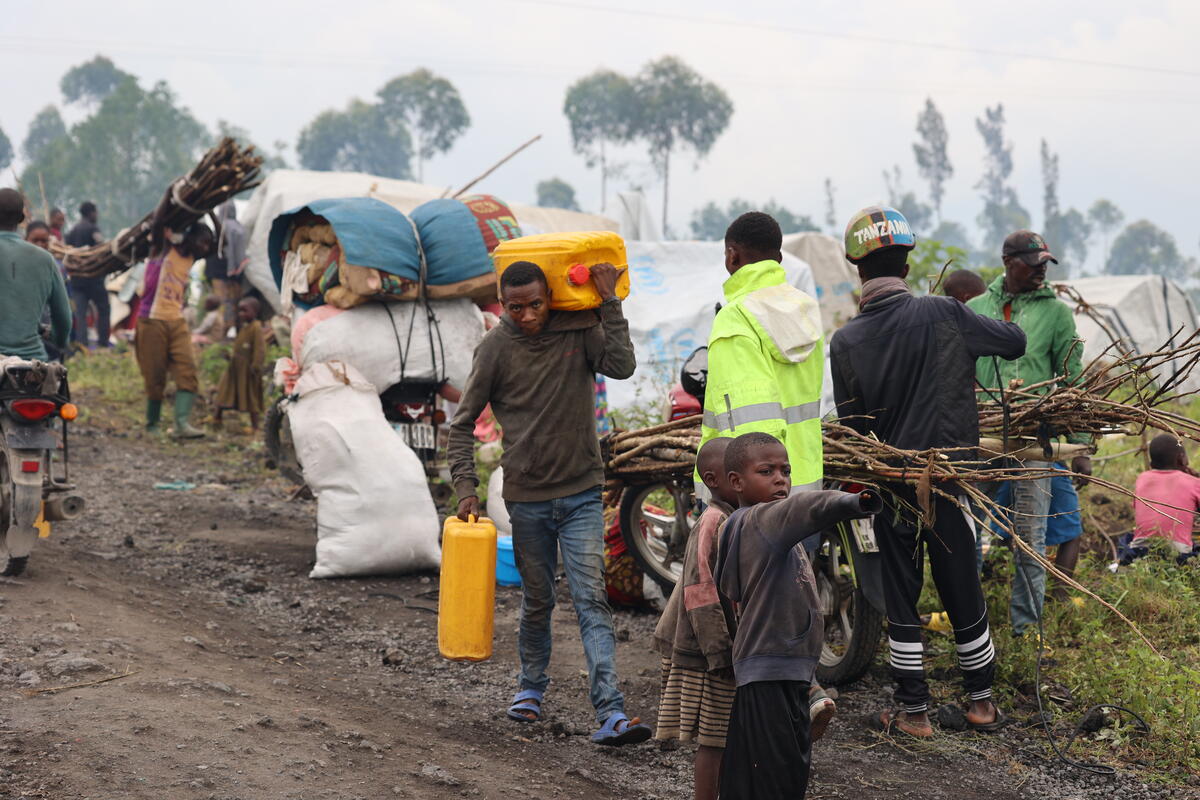DRC: Difficult repatriation from Congo to begin end April
DRC: Difficult repatriation from Congo to begin end April
Towards the end of April, in some of the world's most difficult terrain, UNHCR is scheduled to start the voluntary repatriation of thousands of Congolese refugees currently in the Republic of Congo (RoC) back to the north-western province of Equateur the Democratic Republic of the Congo (DRC).
The logistics of this repatriation movement are amongst the most difficult we have faced anywhere. Roads in the region are little more than rough tracks, torrential downpours are common, and it can take up to ten hours to travel 100 kilometres. UNHCR has organised several modes of transport - including boats to cross the Ubangui River that marks the border between RoC and DRC and trucks to get through thick forests. Frequently, the last stage of the journey will be on foot.
UNHCR has some experience in coping with this difficult terrain. Since last year, we have helped to repatriate some 2,000 refugees from the Central African Republic to Equateur, the only province in DRC where UNHCR facilitates the return of refugees.
There are some 60,000 refugees from DRC in RoC. Most of them fled in the mid to late 1990s. Under an agreement signed last year, UNHCR plans to return some 58,000 refugees in RoC to DRC in a three-year voluntary repatriation scheduled to last through 2007.
For the time being, the situation in other parts of DRC is not considered to be conducive to safe and durable returns of refugees, but we are active in other parts of the country. In South Kivu, UNHCR has started an assistance programme to help returnees coming home under their own initiative to an area devastated by years of conflict. In February 2005, we launched a $15 million appeal to cover both the repatriation to Equateur Province and assistance to returnees in South Kivu. So far, we've received nearly $3.6 million, or 23 percent.


